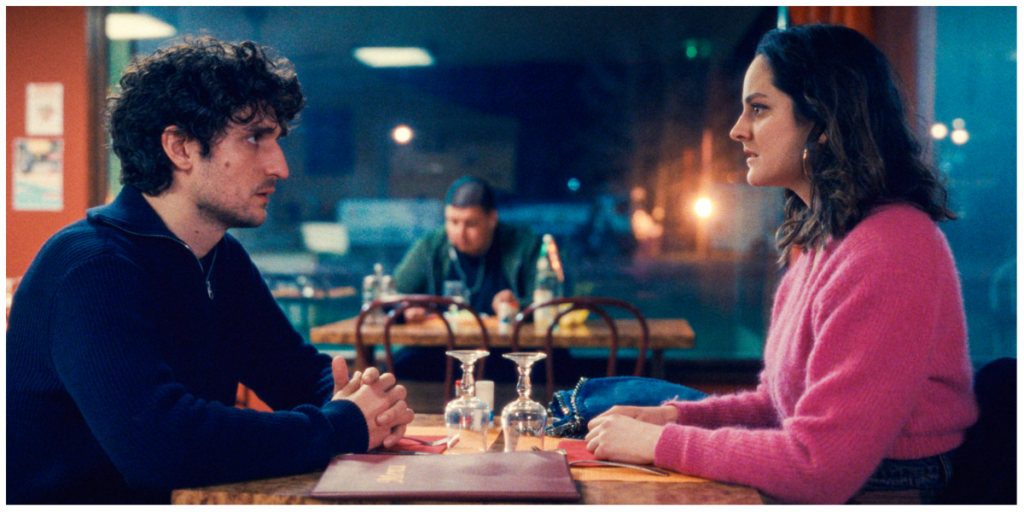The Flash’s tumultuous production history and the rampant legal issues surrounding its star can make it easy to forget that there was a point in time when this film was supposed to spearhead the revival of the DCEU. The restructuring of DC Studios under James Gunn and Peter Safran signaled a different course, one that Barry Allen’s 2011 comic book storyline Flashpoint could be useful to implement. Flashpoint itself originally served as the conduit for DC Comics’ “The New 52” reboot, which reset the publisher’s continuity in the most significant fashion since its launch in the 1930s.
Comic books have relied on plot devices known as “canon events” to keep their mythologies accessible to casual fans who aren’t necessarily engaged with every single storyline. Batman and The Flash are both fundamentally defined by the tragic events that took their parents from their lives, just as Superman can’t be the Last Son of Krypton if Krypton doesn’t blow up in the first place. The Flash centers its narrative around the reality that Barry Allen (Ezra Miller) does have the ability to change his past, an awkward marriage of comic book necessity thrust into the center of a blockbuster movie.
The film kicks off with an awkward action sequence giving the DCEU Batman (Ben Affleck) another moment to shine, nearly five years after the Batfleck experiment was first aborted. Barry’s time travel efforts produce a second, younger version of himself from 2013. Efforts to restore the timeline put him in touch with the Tim Burton Batman (Michael Keaton) as the two essentially relive the events of Man of Steel, complete with General Zod (Michael Shannon), who was last seen having his neck snapped in a disgusting break from canon norm with respect to a certain Kal-El.
Miller’s Allen was one of the highlights of Justice League, a much-needed dose of levity amidst the abounding seriousness of Bruce, Diana, and Clark. The Flash has some isolated humor here and there, but director Andy Muschietti undercuts his whole narrative by forcing Miller to play double duty. Between the depressing nature of the storyline and the two Barrys, Miller is stretched too thin to adequately execute the delightful persona he’d refined over cameo appearances in the television version of The Flash, as well as last year’s Peacemaker. Neither of these Barry’s in The Flash are much fun to be around.
Screenwriter Christina Hodson repeats a key mistake from her work on Birds of Prey, which similarly spends much of its first half as a solo effort before gradually opening up into an ensemble piece. Keaton’s return to the cowl offers little other than nostalgia. Kara Zor-El (Sasha Calle) slides into the narrative in place of her cousin, but Supergirl is given such little screen time that it’s hard to even call her much of a character. Calle delivers a fantastic take on Supergirl that exudes nodes of her Earth-2 counterpart, Power Girl, but her scenes are swallowed up by a third act with far too many other things on its mind.
The special effects range from spectacular to horrendous, an awkward dynamic for the only frontline DC character with their own CW show, the film’s effects often comparing unfavorably to imagery crafted for broadcast television. The action sequences often feel completely obligatory, a lot of explosions and frantic energy without any foreplay. The whole experience perpetually comes across like a first draft that nobody cared to revise, exuding the same sloppy mediocrity that’s defined the canon-level disgrace known as the DCEU.
There is some fan service for comic book diehards here and there, including some delectable cameos for those of us who still have a soft spot for DC’s 90s output. The whole experience feels a bit like dessert without a proper main course, a rush of sugar in the absence of substantive calories. For a movie with a narrative so concerned with comic book semantics, Muschetti never seems to demonstrate that he understands why anyone cares about this stuff in the first place.
The Flash has pieces of a great movie that never flow together in any cohesive fashion. Flashpoint itself is a tricky concept to adapt, especially for Barry’s first solo outing on the big screen. It’s fair to wonder if such a grief-heavy story was the best fit, but there’s also the reality that the narrative serves as an excellent way to bring the DCEU behind the barn for its much-needed demise. We might not have been given The Flash we wanted, but maybe this is The Flash we deserve.















